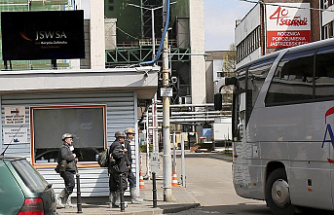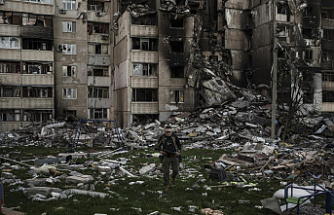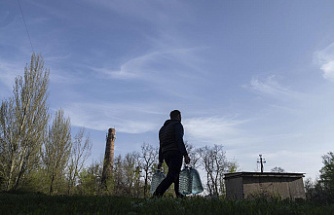These women are just a few of the thousands of French women who denounced online the police's shocking response to their sexual abuse reports.
Anna Toumazoff launched the hashtag #DoublePeine last month after learning that a 19 year-old girl had filed a rape report in Montpellier's southern city. Police asked her in graphic terms if she felt pleasure during the attack.
The hashtag went viral quickly, with many women sharing similar stories in Montpellier and other French police stations. NousToutes, a French women's rights organization, estimated that there were at least 30,000 instances of mistreatment via tweets and other social media messages.
Even though there have been recent training programs for French police officers and a growing awareness about violence against women, activists believe authorities must do more than that to confront the gravity of sex crime and eliminate discrimination against victims.
Gerald Darmanin, the Interior Minister, addressed the nation last week. He stated that "there are certain questions that can't be asked to women when filing a complaint."
He said, "It's not up the police officer to determine whether there was domestic abuse or not. That's up the judge to decide."
He also announced an investigation at the Montpellier police station.
In a previous statement, the prefect of Montpellier had condemned what he called "defamatory remarks" against officers. He condemned "false information and "lies" that were intended to discredit police action.
Toumazoff claimed that he did not launch an anti-police campaign and said the hashtag was intended to urge the government to act.
She told The Associated Press that she was ashamed of the profession by allowing incompetent officers to work in police stations. She stated that the victim she mentioned in her first tweet doesn't want to speak out publicly while her rape claim is being investigated.
The powerful Alliance police union regional branch in Montpellier argued that police officers just do their job. It stated that while police officers can understand victims' distress, establishing the truth requires them to ask "embarrassing" questions.
After being assaulted by a man who lived near her Parisian home and had harassed her on the streets, a 37-year old woman spoke out to the AP about her experiences at a police station.
She recalled that he once blocked her path and press her against a wall. He touched her breasts and threatened to kill her.
The woman described her fearful and emotional arrival at the police station. Officers welcomed her "very kindly."
She claimed that the officer who filed the complaint didn't write down her description of what she was assaulted, and she refused to sign it.
She said, "I had to repeat it all again." The officer asked her if she was sure that the abuser wanted touch her breasts.
She said, "I had to make the gesture in such a way that he can see that it wasn't another part of his body." It's embarrassing to make me repeat the gesture and... mimic it in front of a wall. It was very degrading. It made me feel like a puppet.
The investigation is ongoing. She said that police suggested she move to a different apartment in order to flee her abuser.
A 25-year-old Parisian woman said that she was "traumatized" after being raped in 2016 by her ex.
She recalls that the officer who was specially trained "explained" to her why he was asking so many questions. He was acting in a spirit kindness and not in a hurry when she filed her first complaint. I felt quite safe and that he believed in me.
She was called to another station several months later, which was located on the same street as her attacker. She was very nervous about the possibility of seeing him and said that she was being talked to like she was "stupid", "a liar" and "stupid".
She recalled that police asked her what she was wearing that day. They also inquired about the difference in her clothing from consensual sex. She was told by an officer that she didn't struggle as much.
Due to lack of evidence, the complaint was closed. The police response was described by the young woman as extremely difficult to deal with, having a "huge effect" on her private life. It almost led her to give up her studies.
The Associated Press does not usually name victims of sexual assault.
The interior minister, speaking to the National Assembly's lawmakers, acknowledged that things could be improved in France on this matter.
The government has established a goal of having at least one officer who is specially trained in dealing with domestic violence or sexual abuse at each police station. A survey by INSEE, a national statistical institute, shows that only 10% of victims have filed a formal complaint in these cases.
After the brutal murder of a woman by her husband, the #doublepeine movement was born. A few months ago, one of the officers who had filed her domestic abuse complaint had been convicted for domestic violence.
Darmanin assured that officers who have been convicted of such crimes will not be permitted to contact the public again.
Toumazoff stated that women have been raising alarms for years and denounced announcements made by politicians that were not followed through.
She said, "When it is urgent, such as terror attacks, they are able to do things because that's urgent." It's the exact same here. The lives of women are at risk. It is urgent every day."












